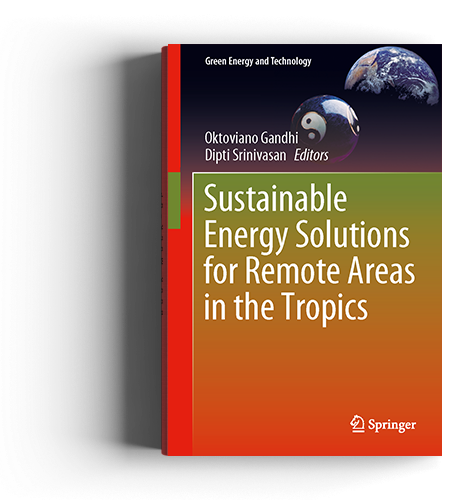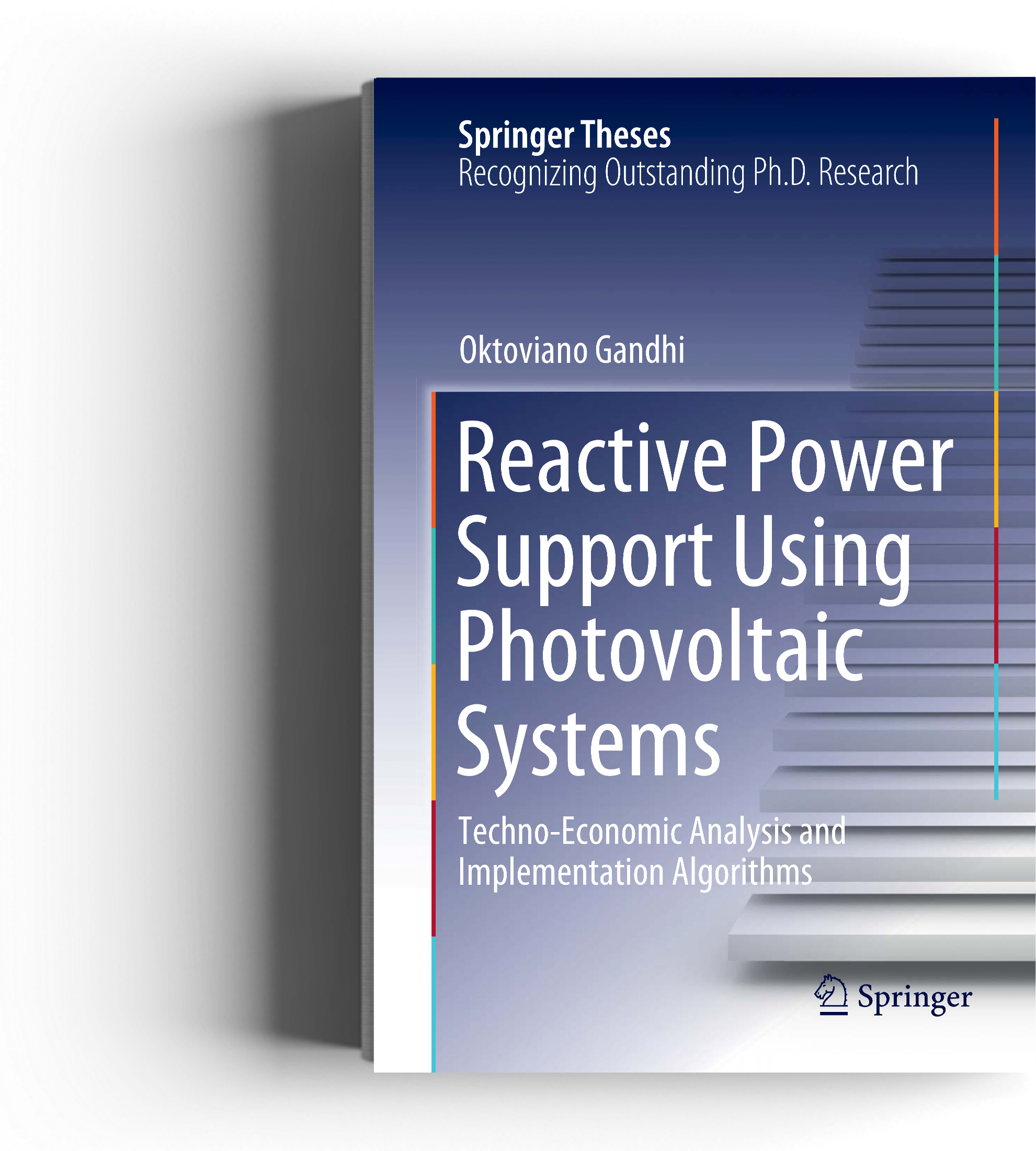Academic | Engineer | Entrepreneur
Book
Sustainable Energy Solutions for Remote Areas in the Tropics
My first encounter with the energy problems in the remote tropics was in early 2016, at the start of my Ph.D. journey under Professor Dipti Srinivasan. At the time, I joined a community project organised by the Indonesian Students’ Association in Singapore to an Indonesian island called Geranting. The island is located merely 30 km away from mainland Singapore, a global financial centre and one of the most prosperous countries in the world, but the difference in the level of development of the two islands could not be starker.
There are about 300 families in Geranting Island, most of them fishermen. The residents relied on an old diesel generator for five hours of electricity per day. When the diesel generator breaks down – a common occurrence – the residents resort to hazardous kerosene lamps for lighting. The island had actually received grants from the government in the forms of solar home systems for each house and communal solar PV systems for the local school and for water desalination. Nevertheless, without transfer of knowledge to the community and proper maintenance, the systems quickly broke down and were abandoned.
After the community project in Geranting, a group of friends and I (which have become Alva Energi) came back to the island to repair the PV system at the local school and decided to try and solve more of these problems. We discovered that this is the case not just in Geranting, but in many islands and communities across Indonesia, and across the developing economies. It is obvious that the technologies to solve the problems are already available, but without proper implementation, the situation will not improve.
That is why, I, together with Professor Dipti Srinivasan, have decided to write a book with contributions from experts in sustainable energy. Sustainable Energy Solutions for Remote Areas in the Tropics not only provides an overview of the types of problems that exist in the remote tropics, but also the details of what the solutions can be, accounts on how they have been applied in real life by experts in the field, as well as their impacts and how these solutions can be made more sustainable, not only for the environment, but also for the communities. This book is targeted towards people who want to make a real difference in the world, by solving one of the world’s most challenging problems at any scale – one community, an island, a country, or even a whole continent.
The lessons from these experts are now more important than ever. As we are faced with the “dual challenge” of meeting rising energy demand and emitting decreasing amount of carbon, we need to collaborate and combine all our efforts, knowledge, and expertise to come up with, implement, and scale the solutions.
Have any feedback about the book? Want to discuss how we can solve some of the energy problems together? Please drop me a message!
Reactive Power Support Using Photovoltaic Systems
This book was published as part of Springer PhD Theses series to recognise the contributions of my PhD research. The results presented in the book are from the four years I spent researching under Prof. Dipti Srinivasan of the National University of Singapore and Dr. Thomas Reindl of the Solar Energy Research Institute of Singapore (SERIS). Below is the summary of the book:
With the widespread adoption of photovoltaic (PV) systems across the world, many researchers, industry players, and regulators have been exploring the use of reactive power from PV to support the grid. This thesis is the first to comprehensively quantify and analyse the techno-economic cost and benefits of reactive power support using PV. On top of formulating the cost of PV reactive power and identifying the feasible range of its monetary incentives, this thesis has also proposed practical methods to implement the reactive power dispatch effectively and efficiently, with and without communication infrastructure. The findings and approaches in this work can therefore help power system planners and operators towards better integration of PV into the electrical grid, both in terms of regulation and implementation.






